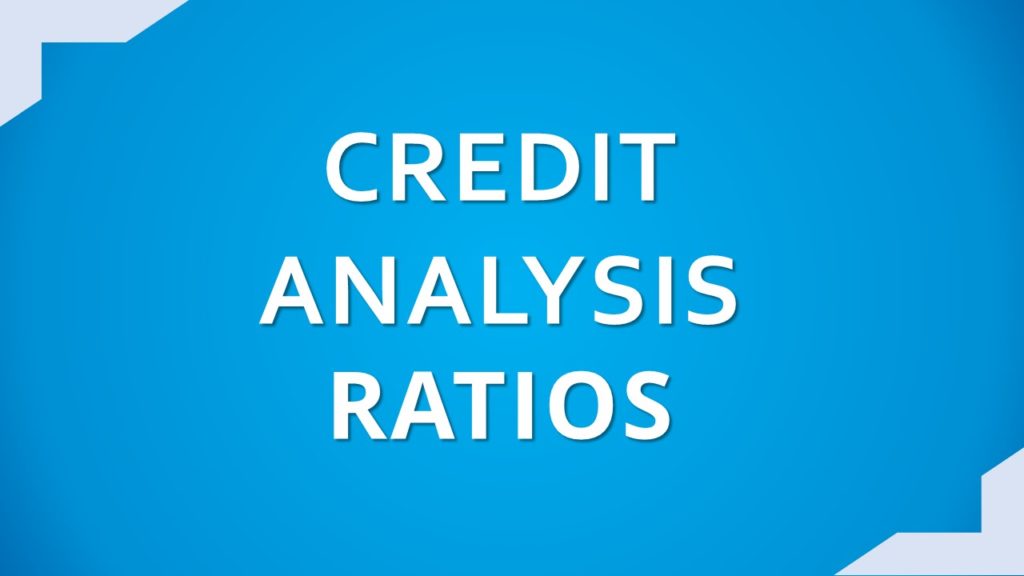What is Taxation?
Taxation is the process to impose or levy taxes by the government or taxable authority on individuals and business entities. It ranges from income tax to goods and services tax (GST). Tax systems have varied considerably across jurisdictions and time.
What is Income Tax?
Income tax is a type of tax that governments impose on income generated by individuals and businesses within their jurisdiction. It is charged for the corresponding assessment year at the rates laid down by the Finance Act for the assessment year in respect of the previous year.
What is Assessee?
Taxpayers are called assessee under the Indian Income Tax Act of 1961.which includes individuals paying taxes for themselves, representing on behalf of someone else, obligated by any legal authority to pay taxes and individuals who have not paid tax on time.
What is Accrued Income?
Accrued income has been earned but has yet to be received. Income is recorded in the same accounting period in which it is earned rather than in the subsequent period in which it will be received.
What is TDS?
TDS stands for ‘Tax Deducted at Source’. It is tax which is deducted on source of income. TDS is not applicable to all incomes and persons for all transactions. Different TDS rates have been prescribed by the Income Tax Act for different payments and different categories of recipients.
What is an Assessment Year?
Assessment year means the period of 12 months, starts from1st April and ends on 31st March. It is the year in which the income that one has earned in the financial year that is just ended is evaluated.
E.g. For Financial Year 2019-20 the Assessment Year will be 2020-21.
What is Tax audit?
Tax Audit is an examination of the Income Tax Return filed by the company or individuals for the assessment year and inspecting the information mentioned in the ITR is true or not. It is done to verify the correctness and fairness of the financial records of the assesses.
What Is a Tax Refund?
Tax refund is a reimbursement to a taxpayer of any excess amount paid to the government. After taking into consideration income tax, withholdings, tax deductions or credits and other factors you file income tax for the year, after that you will receive a tax refund.
What is Deferred Tax?
Deferred tax refers to either a positive (asset) or negative (liability) entry on a company’s balance sheet regarding tax owed or overpaid due to temporary differences. it occurs due to the difference in a company’s balance sheet, due to the differences between accounting practices and tax regulations.
What is Deferred Tax Liability?
Deferred tax liability is a tax that is assessed or is due for the current period but has not yet been paid. it occurs when a business has a certain amount of income for an accounting period and that amount is different from the taxable amount on their tax return. When the amount is less than the estimated tax, an entry is placed on the balance sheet in the form of a liability.
What is a Deferred Tax Asset?
When a company overpays for a particular tax period, this can be marked as a deferred tax asset on the balance sheet. If taxes are overpaid or paid in advance, then the amount of overpayment can be considered an asset and illustrates that the business should receive some tax break in the next filing.
What is Amortization?
Amortization is an accounting technique used to periodically lower the book value of a loan or intangible asset over a set period of time. In relation to a loan, amortization focuses on spreading out loan payments over time. When applied to an asset, amortization is similar to depreciation.
What is an Impairment?
In accounting, impairment describes a permanent reduction in the value of a company’s asset, typically a fixed asset or an intangible asset. When testing an asset for impairment, the total profit, cash flow, or other benefit expected to be generated by that specific asset is periodically compared with its current book value.
What is Securities Transaction Tax?
Securities Transaction Tax is a direct tax levied on every purchase and sale of securities that are listed on the recognized stock exchanges in India. This tax was introduced in the 2004 Union Budget and came into effect from 1 October 2004.
What is PAN?
PAN stands for Permanent Account Number. PAN is a ten-digit unique alphanumeric number issued by the Income Tax Department. It enables the department to link all transactions of the assessee with the department. These transactions include tax payments, TDS/TCS credits, returns of income, specified transactions, correspondence and so on. It facilitates easy retrieval of information of assessee and matching of various investments, borrowings and other business activities of assessee.
How PAN gets its Unique Identity?
PAN is a ten-digit unique alphanumeric number, formation of PAN is discussed below:
- Out of the first five characters, the first three characters represent the alphabetic series running from AAA to ZZZ.
- The fourth character of PAN represents the status of the PAN holder.
- “A” stands for Association of Persons (AoP)
- “B” stands for Body of Individuals (BOI)
- “C” stands for Company
- “F” stands for Firm/Limited Liability Partnership
- “G” stands for Government Agency
- “H” stands for Hindu Undivided Family (HUF)
- “J” stands for Artificial Juridical Person
- “L” stands for Local Authority
- “P” stands for Individual
- “T” stands for Trust
- Fifth character of PAN represents the first character of the PAN holder’s last name/surname in case of an individual. In case of non-individual PAN holders fifth character represents the first character of PAN holder’s name.
- Next four characters are sequential numbers running from 0001 to 9999.
- Last character, i.e., the tenth character is an alphabetic check digit.
- The combination of all the above items gives the PAN its unique identity.
What is Cash Flow?
Cash flow refers to the outflow and inflow of cash or cash equivalents in an organization in a specific period. Cash flow is recorded in the cash flow statement, which is one of the most important financial statements in accounting.
What is Fund Flow?
Fund flow refers to the working capital of the company, and a fund flow statement is prepared to visualize the changes in working capital of the company over a period of time. Investors use the fund flow information to determine where capital needs to be invested.
Cash Flow vs Fund Flow: What's the difference?
Cash flow refers to the current format for reporting the inflows and outflows of cash, while funds flow refers to an outmoded format for reporting a subset of the same information. The fund flow statement is the earlier version of the cash flow statement. The cash flow statement is more comprehensive and details the multiple cash flows of a company, rather than just focusing on working capital.
What Is Excise Duty?
Excise Duty is an indirect tax levied on production of goods that are manufactured and produced within India. This type of tax is very importantly levied on manufactured goods within India.
What is Sales Tax?
Sales tax is a tax levied on sale or purchase within the various States of India. Different states charge different sales tax levels, whereas there is a Central Sales Tax (CST) levied on sale or purchase in the line of interstate trade. If the Goods and Services Tax-GST is introduced it would make more efficient most of the taxes including states taxes and excise tax.
What are differences between Excise Duty vs Sales Tax?
Excise duty is on the production of goods whereas sales tax is levied on sale
of goods.
- Excise duty is paid by the manufacturer while the burden of sales tax is borne by the end consumer.
- Excise Duty is payable on the removal of goods from factory or the manufacturing go down whereas sales tax is payable after only the sale has taken place in India.
- Excise duty is levied on accessible value whereas Sales tax is based on sale price.
What is an Excise Tax?
Excise tax is a legislated tax on specific goods or services at purchase such as fuel, tobacco, alcohol and also in the price of an activity such as gambling. Excise taxes are intranational taxes imposed within a government infrastructure rather than international taxes imposed across country borders. Excise taxes may be imposed by both Federal and state authorities.
What is Service Tax?
Service tax is a tax levied by the government on service providers on certain service transactions, but is actually paid by the customers. Services provided by air-conditioned restaurants and short term accommodation provided by hotels, inns, etc are included in the taxable services.
Excise Tax vs Service Tax: What's the difference?
The major difference between excise tax and service tax is that excise tax is charged on manufactured goods and sales tax is imposed on certain services provided. manufacturer pays the excise tax whereas the consumer pays the sales tax.
What is Commercial Tax?
Commercial Tax is a tax on goods and services that the government levies on the manufacturers and producers, who again levy it on customers or end users of these goods and services. It is a type of indirect tax because it is paid by the end user to the government via the manufacturer.
What is Entertainment Tax?
Entertainment tax or amusement tax is imposed on all different kinds of commercial entertainment such as commercial shows, movie tickets, DTH services, film festivals, amusement parks, etc. It is an indirect tax that is charged from the customers. Previously, the tax rate, tax exemption and other tax-related rules varied from state to state. The entertainment tax is now charged as per GST.
What is Fringe Benefit Tax?
Fringe benefit tax is levied on the fringe benefits that are provided by the company to the employees. This tax is paid to the government by the employers for offering these fringe benefits. This was abolished in the fiscal year 2010-11.
What is Capital Gain?
Capital gain is an increase in a capital asset’s value. It is considered to be realized when you sell the asset. A capital gain may be short-term (one year or less) or long-term (more than one year) and must be claimed on income taxes.
What is Capital Gains Tax?
Capital gains tax is a levy assessed on the positive difference between the sale price of the asset and its original purchase price.
- Long-term capital gains tax is a levy on the profits from the sale of assets held for more than a year.
- Short-term capital gains tax applies to assets held for a year or less, and is taxed as ordinary income.
What is Working Capital?
Working capital is the difference between a company’s current assets, such as cash, accounts receivable (customers’ unpaid bills) and inventories of raw materials and finished goods, and its current liabilities, such as accounts payable.
Working Capital is a measure of a company’s liquidity, operational efficiency and its short-term financial health. it is used into day-to-day operations of any business.
What is Alternative Minimum Tax (AMT)?
An alternative minimum tax is a tax that ensures that taxpayers pay at least the minimum. AMT is an alternative to the standard income tax regime which a taxpayer might have to follow for paying taxes to the government. As compared to the regular tax regime, AMT has its own set of rules, exemptions, calculations, and deductions.
What is GST?
GST Stands for ‘Goods and Service Tax’. it’s a single tax on supply of goods and services.
What is CGST?
CGST Stands for ‘Central Goods and Services Tax’. Under GST, CGST is a tax levied on Intra State supplies of both goods and services by the Central Government. It replaces taxes like Central Excise and Service tax.
What is SGST?
SGST Stands for ‘State Goods and Services Tax’. Under GST, SGST is a tax levied on Intra State supplies of both goods and services by the State Government. It replaces taxes like VAT, Luxury tax and Entertainment tax.
What is IGST?
IGST Stands for ‘Integrated Goods and Services Tax’. Under GST, IGST is a tax levied on all Inter-State supplies of goods and services by the Central Government. It replaces taxes like Central Sales Tax
What are the taxes that got replaced by GST?
Unlike earlier when there were multiple taxes such as Central Excise, Service Tax and State VAT etc., under GST, there is just one tax. GST is categorized into CGST, SGST or IGST depending on whether the transaction is Intra-State or Inter-State.
The GST replaces indirect taxes such as:
- VAT/Sales Tax
- Entertainment Tax
- Luxury Tax
- Tax on Lottery/Gambling/Betting
- Purchase Tax
- Octroi
- Central Excise Duty
- Additional Excise Duty
- Additional Custom Duty
- Service Tax
- Countervailing Duty





